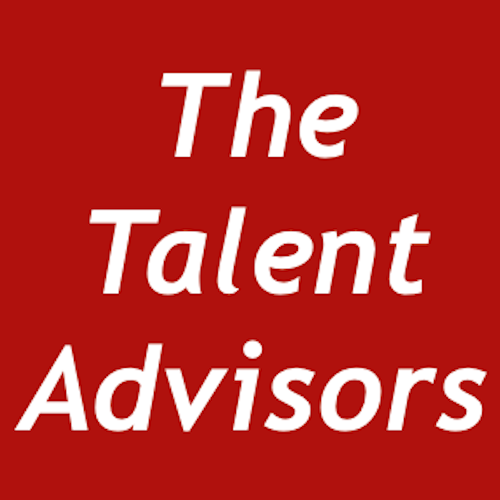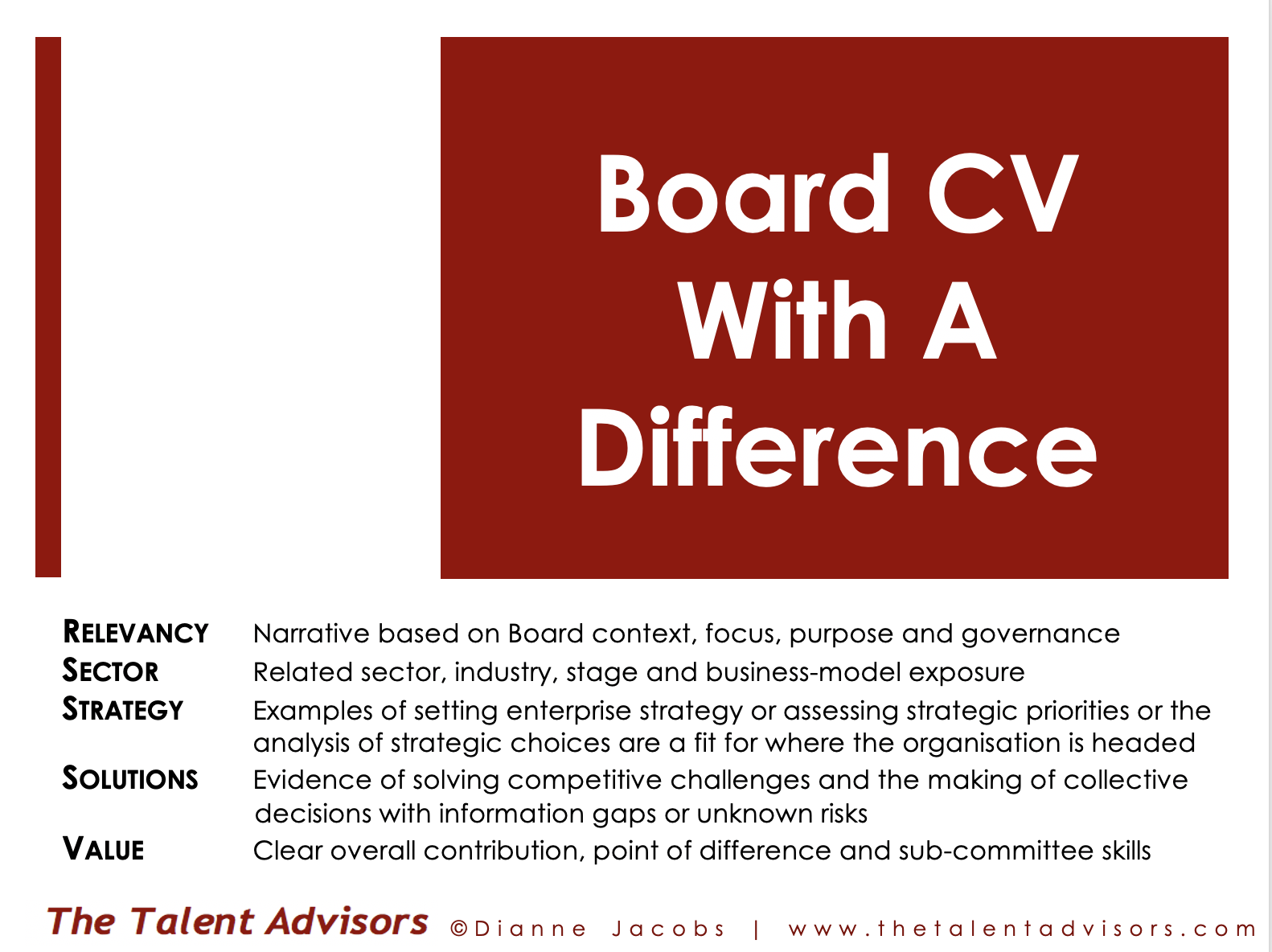CV EXCELLENCE: Research, Relevance, Results
Competition for directorships is usually strong. Long lists are getting longer, including a high number of aspiring directors looking for their first board. While chairs are more open to first-time directors, are taking steps to have more diverse boards and have an increasing focus on adding new skills, few will discount the need to recruit a new director with the right qualities and a good fit with the board dynamic.
Each board approach and each vacancy are different. The strategic direction and life-cycle stage of the organisation, as well as the forces and complexities within the sector, drive the increasing focus of board composition and the skills matrix.
For aspiring directors, this means a careful rethink of how to present their capabilities as cutting and pasting from a corporate resume will signal they ‘don’t get it’ when it comes to the role of boards and directorships.
Those reading the board resume require different and specific information. Nomination committees need to know your value proposition in the context of their particular board. The fundamental question for you to answer is: “what can I really contribute to the strategic direction and challenges of this board?”
As you start to prepare your board CV these three steps will guide your narrative:
Research: the initial step is to be aware of the issues faced by the sector you are targeting, the core director responsibilities, and what will be required from the board sub-committee that best suits your background.
Relevance: think hard about what aspects of your experience, knowledge and transferable skills are more likely to have weight. Select those of high interest to your target boards such as industry insight, strategy, finance and risk, governance, fund raising, transformation or CEO succession.
Results: others can't read between the lines so identify the best examples of what you have done and outcomes achieved. Be prepared to move from clichés and generalities to precise and tangible impact. Demonstrate the strategic, good problem solving and sound group process rather than the operational.
Working through this information to present a credible and compelling story may not be easy. Having a robust discussion with a trusted adviser who can test your board-level thinking, such as an experienced director or a mentor, can be insightful.
Writing the two or three-page, well-structured board CV requires a tone and style that is succinct and focused. You need to show that you can think clearly and put together a concise argument. Write in a straightforward, factual and direct style, yet with enough information and key words to answer: ‘so what?’
Fit should be apparent from page one. The profile summary brings together your unique value in three or four paragraphs. It should be followed by the core skills that tie in with those required by the board. It is your directorships or board-level executive committee work that comes next, outlining your capacity to address complex matters within collective decision-making and networked leadership. Then set out in narrative form your employment history over the past decade with sufficient detail to explain scope and outcomes but still at a high level.
Finally, director qualifications, awards, and board relevant memberships conclude the document. Section headings signpost your key themes.
Board processes, liabilities and dynamics differ significantly to corporate management. Getting your board resume right is one way to demonstrate why you belong at the boardroom table.
🚩 INSIGHTS FOR ACTION | OUR SERVICES | JOIN MAILING LIST
🚩 Discover what support we offer executives and corporates.
Copyright and All Rights Reserved | About Dianne Jacobs

